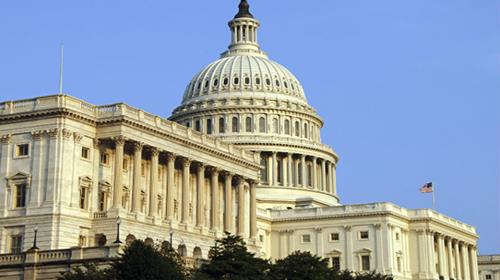

The Resolution also calls for justice for the victims.
115th Congress (2017-2018) |
Text: H.Res.188 — 115th Congress (2017-2018)
Text available as:
Introduced in House (03/09/2017)
[Congressional Bills 115th Congress]
[From the U.S. Government Publishing Office]
[H. Res. 188 Introduced in House (IH)]
115th CONGRESS
1st Session
H. RES. 188
Condemning the Government of the Islamic Republic of Iran for the 1988
massacre of political prisoners and calling for justice for the
victims.
_______________________________________________________________________
IN THE HOUSE OF REPRESENTATIVES
March 9, 2017
Mr. McCaul (for himself, Mr. Royce of California, Mr. Engel, Mrs.
Comstock, Mr. McClintock, Mr. Sessions, Mr. Keating, Mr. Sherman, Mr.
Young of Alaska, and Ms. Judy Chu of California) submitted the
following resolution; which was referred to the Committee on Foreign Affairs
RESOLUTION
Condemning the Government of the Islamic Republic of Iran for the 1988 massacre of political prisoners and calling for justice for the victims.
Whereas over a 4-month period in 1988, the Government of the Islamic Republic of
Iran carried out the barbaric mass executions of thousands of political
prisoners and many unrelated political groups;
Whereas according to a report by the Iran Human Rights Documentation Center, the
massacre was carried out pursuant to a fatwa, or religious decree,
issued by then-Supreme Leader Ayatollah Ruhollah Khomeini, that targeted
the People’s Mojahedin of Iran (PMOI), also known as the Mujahedeen-e-
Khalq (MEK);
Whereas according to a November 2, 2007, report by Amnesty International,
“between 27 July 1988 and the end of that year, thousands of political
prisoners [in Iran], including prisoners of conscience, were executed in
prisons nationwide”;
Whereas the killings were carried out on the orders of a judge, an official from
the Ministry of Intelligence, and a state prosecutor, known to the
prisoners as “Death Commissions” which undertook proceedings in a
manner designed to eliminate the regime’s opponents;
Whereas those personally responsible for these mass executions include senior
officials serving in the current Government of Iran;
Whereas prisoners were reportedly brought before the commissions and briefly
questioned about their political affiliation, and any prisoner who
refused to renounce his or her affiliation with groups perceived as
enemies by the regime was then taken away for execution;
Whereas the victims included thousands of people, including teenagers and
pregnant women, imprisoned merely for participating in peaceful street
protests and for possessing political reading material, many of whom had
already served or were currently serving prison sentences;
Whereas prisoners were executed in groups, some in mass hangings and others by
firing squad, with their bodies disposed of in mass graves;
Whereas according to Amnesty International, “the majority of those killed were
supporters of the PMOI, but hundreds of members and supporters of other
political groups . . . were also among the execution victims”;
Whereas later waves of executions targeted religious minorities, such as members
of the Baha’i faith, many of whom were often subjected to brutal torture
before they were killed;
Whereas the families of the executed were denied information about their loved
ones and were prohibited from mourning them in public;
Whereas in a recently disclosed audiotape, the late Hussein Ali Montazeri, a
grand ayatollah who served as Khomeini’s chief deputy, noted the
regime’s efforts to target the MEK and said that the 1988 mass killings
were “the greatest crime committed during the Islamic Republic, for
which history will condemn us”;
Whereas the current Supreme Leader Ali Khamenei was reportedly aware of, and
later publicly condoned the massacre;
Whereas in violation of its international obligations, the Government of Iran
continues to systematically perpetrate gross violations of the
fundamental human rights of the Iranian people; and
Whereas the November 2, 2007, report from Amnesty International concluded
“there should be no impunity for human rights violations, no matter
where or when they took place. The 1988 executions should be subject to
an independent impartial investigation, and all those responsible should
be brought to justice, and receive appropriate penalties”: Now,
therefore, be it
Resolved, That the House of Representatives–
(1) condemns the Government of the Islamic Republic of Iran
for the 1988 massacre, and for denying the evidence of this
manifest set of crimes against humanity;
(2) urges the Administration and United States allies to
publicly condemn the massacre, and pressure the Government of
Iran to provide detailed information to the families of the
victims about their loved ones and their final resting places;
and
(3) urges the United Nations Special Rapporteur on the
human rights situation in Iran and the United Nations Human
Rights Council to create a Commission of Inquiry to fully
investigate the massacre and to gather evidence and identify
the names and roles of specific perpetrators with a view
towards bringing them to justice.

